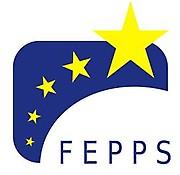Welcome to the Konrad-Adenauer-Stiftung!
Freedom, justice and solidarity are the basic principles underlying the work of the Konrad-Adenauer-Stiftung (KAS). The KAS is a political foundation, closely associated with the Christian Democratic Union of Germany (CDU). As co-founder of the CDU and the first Chancellor of the Federal Republic of Germany, Konrad Adenauer (1876-1967) united Christian-social, conservative and liberal traditions. His name stands for the democratic reconstruction of Germany, the firm alignment of foreign policy with the transatlantic community of values, the vision of a unified Europe and an orientation towards the social market economy. His intellectual heritage continues to serve both as our aim as well as our obligation today.
In our European and international cooperation efforts we work for people to be able to live self-determined lifes in freedom and dignity. Underpinned by our values, we contribute to helping Germany meet its growing responsibilities throughout the world.
We encourage people to lend a hand in shaping the future along these lines. With more than 100 offices abroad and more than 200 projects in over 120 countries, we make a unique contribution to promoting democracy, the rule of law and a social market economy. To foster peace and freedom we encourage a continuous dialog on foreign policy and security as well as the exchange between cultures and religions.
Human beings in their distinctive dignity and with their rights and responsibilities are at the heart of our work. We are guided by the conviction that human beings are the starting point in the effort to bring about social justice and democratic freedom while promoting sustainable economic activity. By bringing together people who embrace their responsibilities in society, we develop active networks in political and economic spheres as well as in society itself. The guidance we provide on the basis of our political know-how and knowledge helps to shape the globalization process along more socially equitable, ecologically sustainable and economically efficient lines.
We cooperate with governmental institutions, political parties, civil society organizations and handpicked elites, building strong partnerships along the way. Trying to reach our goals, we seek to reinforce policies in the area of development mainly by improving cooperation at a national and international level. Together with our partners we are building an international framework that enables every country to develop in freedom and under its own responsibility.
The Rule of Law Programme South East Europe of the Konrad-Adenauer-Stiftung is designed as a regional programme, including Albania, Bosnia and Herzegovina, Bulgaria, Kosovo, Croatia, North Macedonia, Montenegro, the Republic of Moldova, Romania and Serbia. The programme focuses on the sustainable consolidation of a democratic rule of law in the targeted countries. By developing and supporting seminars, advanced training courses, conferences, publications and by guidance, the programme aims at significantly developing and strengthening the legal order corresponding to efficient, rule-of-law-based principles. Such a legal order represents a core element of any democratic system, as well as the prerequisite for the regional countries’ accession to the European Union.
The Rule of Law Programme South East Europe is one of six regional rule of law programmes managed worldwide by the Konrad-Adenauer-Stiftung (KAS). It supplements the activities of the six country offices run by KAS in South East Europe. The office of the Rule of Law Programme is based in Bucharest (Romania).
Within the scope of the Rule of Law Programme South East Europe, the activity concentrates on the following five subject areas, which currently face substantial need for reform and consultation within and among the countries of the region:
CONSTITUTIONAL LAW AND CONSTITUTIONAL JURISDICTION
especially through the creation of modern state constitutions, in which the main institutional and substantive elements of a democratic constitutional state are enshrined. The institutional constitutional law, as a guarantor of the separation of powers in the state and the control of the separation of powers, which is necessary, above all, for the independence of the judiciary. In addition, the substantive constitutional law, which must guarantee equality before the law and the rights of freedom and fundamental rights. >>Further information
PROCEDURAL LAW
insofar as it secures respect for fundamental rights and principles of the rule of law. In particular, the development and reform of constitutional, criminal and administrative procedural law. >>Further information
PROTECTION OF HUMAN AND MINORITY RIGHTS
particularly the promotion and strengthening of national and international human rights protection systems as well as encouragement of safeguarding fundamental rights protected by both the Constitution and the ordinary legal acts. Of essential importance is the support for public institutions, responsible for the implementation of fundamental rights and freedoms. >>Further information
PROMOTION OF AN INDEPENDENT AND INTEGRIOUS JUSTICE
above all, encouraging of professional and integrious conduct in legal professions by means of education and promotion of international and regional codes of conduct and ethics for judges and state attorneys. The development and implementation thereof at the national level, support for further development of laws and measures aiming at the prevention of conflicts of interests and the promotion of a rational, freely accessible, transparent, independent and efficient judiciary system represent a main component of the rule of law programme and serve to approximate EU standards and the rule of law. >>Further information
COPING WITH THE PAST BY LEGAL MEANS
particularly supporting the countries of the region to overcome their authoritarian/totalitarian pasts, as well as the wartime past. Promotion of the exploration of possibilities for the legal mastering of the past, and of the discussion of instruments thereof, especially on a regional level. >>Further information
In the above mentioned areas of focus, the Rule of Law Programme South East Europe organizes both regional and national events (seminars, trainings and conferences) for the countries of the region and supports the release of publications.
The target groups of the Rule of Law Programme South East Europe are above all legal practitioners (judges at regional courts of human rights, national constitutional judges, judges of the supreme or ordinary courts, prosecutors and attorneys at law), judiciary bodies, as well as public inspection bodies (particularly the superior councils of magistracy and the judicial councils, constitutional courts and supreme courts, ombudsperson institution and attorney-generalship), legal professional bodies (unions of magistrates, judges and attorneys at law), judicial institution employees, as well as employees of the justice administration, police and security forces, university professors (especially of the faculties of law and of independent scientific institutes), Schools of Magistrates and other legal training facilities, members of the Parliament (above all members of the legal and legislative committees), as well as members of the Government and ministry employees (particularly those of the ministry of justice and internal affairs), political parties, officials of different integration associations, members of non-governmental organizations active in the field of rule of law, civil society, churches, church-affiliated organizations and last but not least media, journalists and publishers. Hence, the Programme’s primary targets are young jurists, particularly students of law and young legal professionals.
The Rule of Law Program Southeast Europe works with local partner organizations in all areas. This ensures that this program responds to and builds on in-country developments and initiatives. The transnational approach of the Rule of Law Program is intended to provide an incentive for regional cooperation among the target groups and to support the development of a cooperation network between the countries of Southeast Europe as well as between professionals from the region and EU member states.























